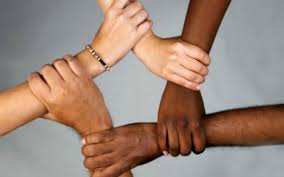Protection of Minority Rights in Ukraine
Introduction
The protection of minority rights is an integral part of a democratic society and an important indicator of human rights. Ukraine, as well as many other countries, is home to various ethnic, religious and cultural groups, each with its own unique needs and rights. Ensuring their legal protection is a key task of the state. In this article, we will examine the main aspects of minority rights protection in Ukraine, including the legal framework, current challenges and prospects for development.
The main part
Legislative Framework
Ukraine has a comprehensive approach to protecting minority rights based on national legislation and international obligations. The main acts regulating minority rights in Ukraine include:
- The Constitution of Ukraine: Guarantees equality of rights and freedoms to all citizens regardless of their ethnic origin, language, religion or other characteristics (Article 24).
- The Law of Ukraine "On National Minorities in Ukraine": Defines the rights of national minorities, including the right to education, use of their native language, and preservation of national culture and traditions.
- The Law of Ukraine "On the Principles of State Language Policy": Regulates the use of languages of national minorities in various spheres of public life.
- International obligations: Ukraine is a signatory to many international treaties and conventions, including the Council of Europe's Framework Convention for the Protection of National Minorities and the European Charter for Regional or Minority Languages.
Key Challenges
Despite the existence of a legal framework, there are certain challenges to protecting minority rights in Ukraine:
- Language issue: The use of minority languages in state institutions, educational institutions and the media is often controversial. In particular, the Law "On Ensuring the Functioning of Ukrainian as the State Language" has sparked debate over the balance between the state language and minority languages.
- Access to education: Providing education in minority languages is an important but challenging task. There are often problems with the availability of teaching materials and qualified teachers.
- Social discrimination: Members of some minorities face discrimination and prejudice in society, which can affect their access to employment, health care, and other social services.
- Political representation: Despite some successes, minority groups often have limited access to political and managerial positions.
You may be interested in the following articles: consultation of a lawyer, consultation of a lawyer, analysis of documents, legal analysis of the situation, written consultation, verification of documents by a lawyer, lawyers documents, assistance of a lawyer online, lawyer online, legal opinion, legal opinion of a lawyer, lawyer online.
Prospects and Recommendations
A number of steps need to be taken to improve the protection of minority rights in Ukraine:
- Raising awareness: Conducting educational campaigns to raise public awareness of minority rights and combat prejudice.
- Development of legislation: Improving the legal framework in line with international standards and recommendations, in particular on language policy and education.
- Support for public initiatives: Promoting the activities of civil society organizations working to protect the rights of minorities.
- Improving access to justice: Ensuring effective access to justice and legal aid for minorities.
Conclusion.
The protection of minority rights in Ukraine is an important aspect of building a democratic society where every citizen has equal rights and opportunities. Despite existing challenges, Ukraine has significant potential for development in this area thanks to its legal framework and international relations.

































